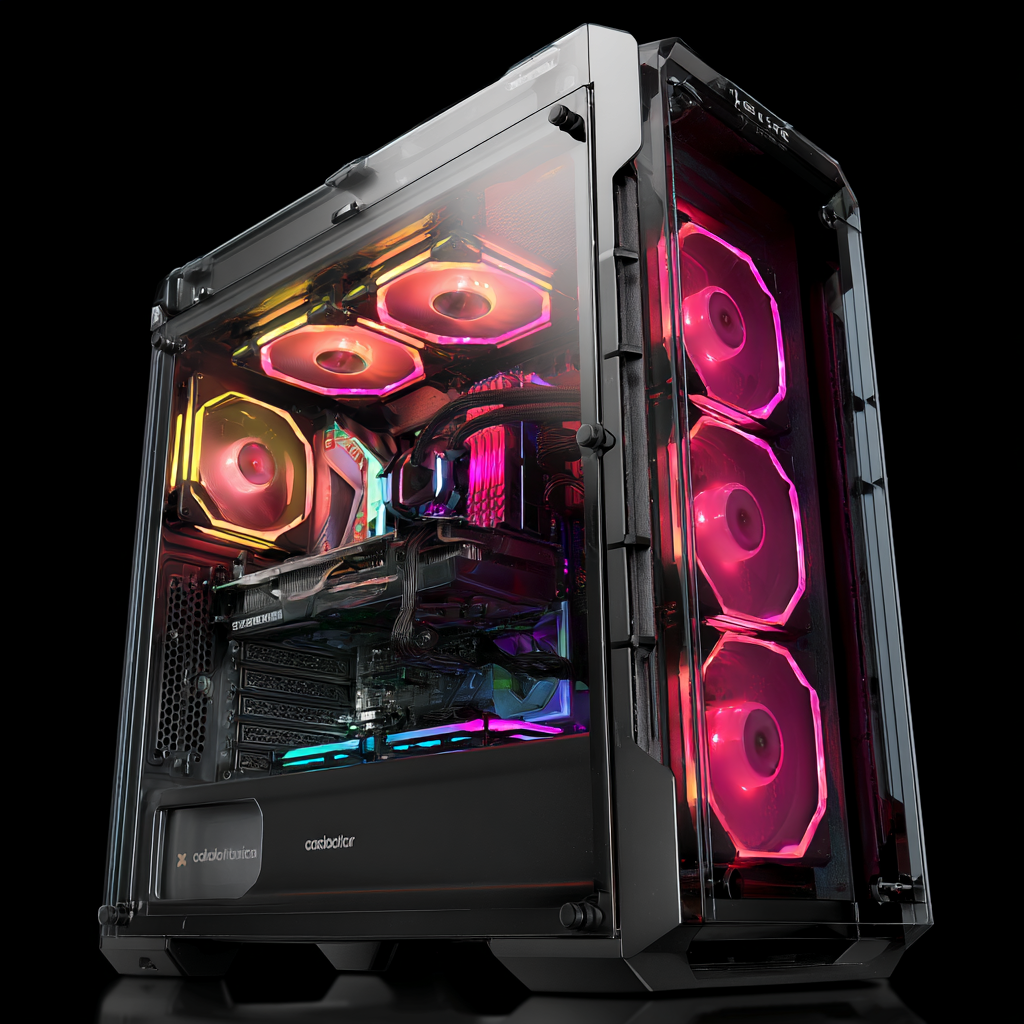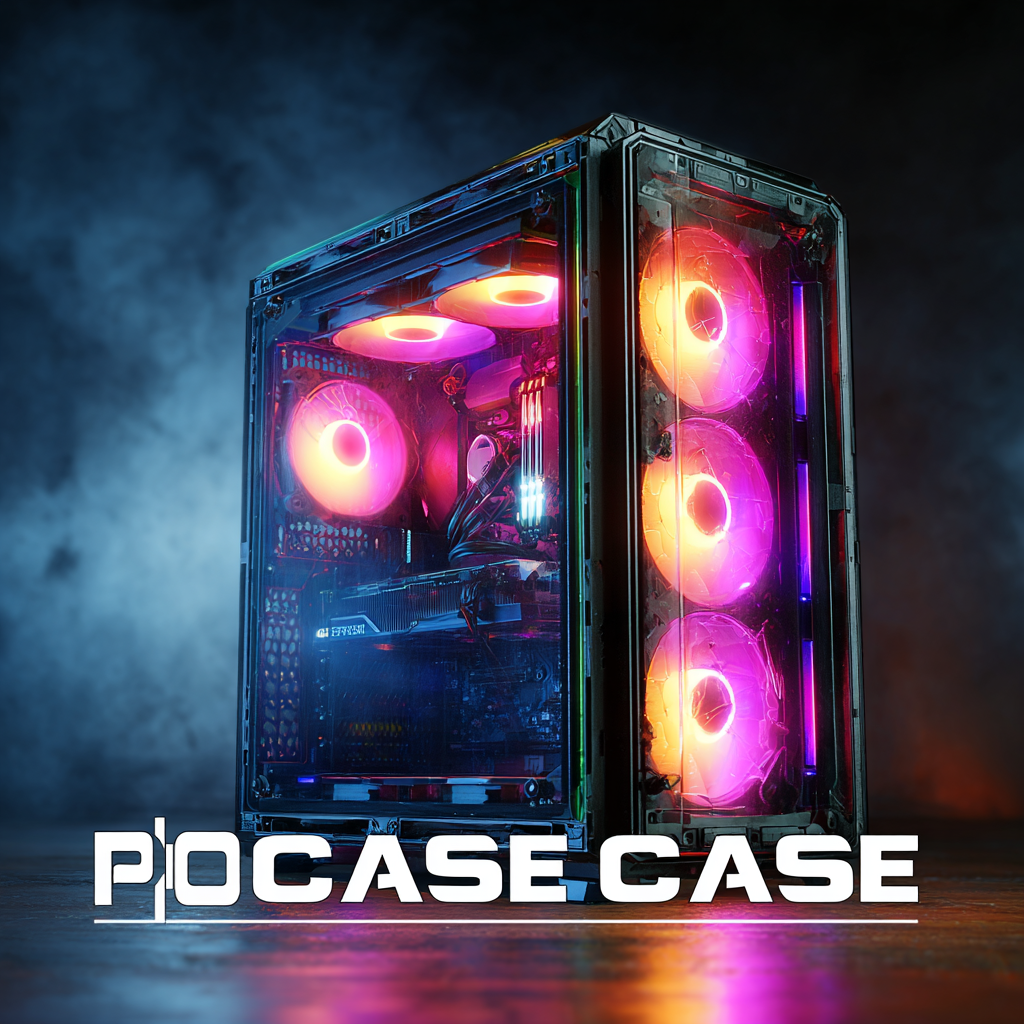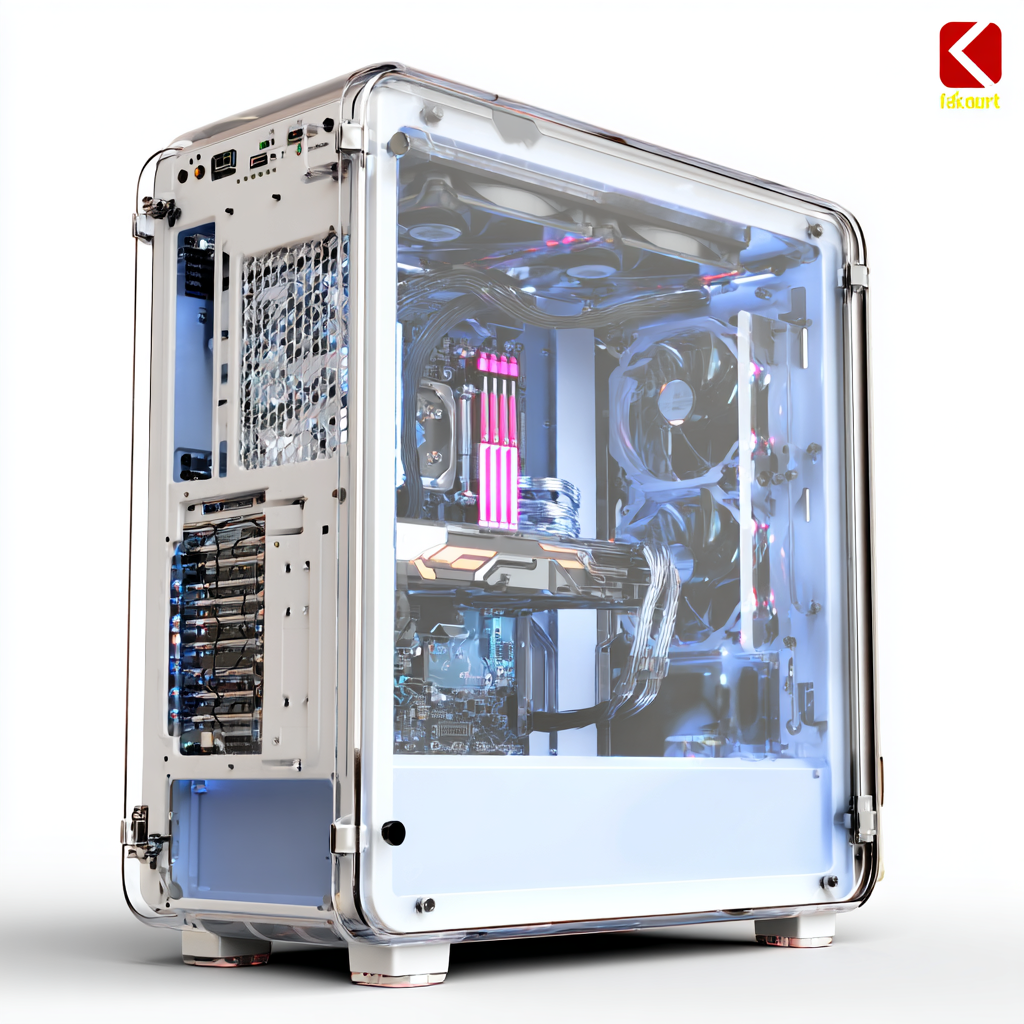Leave Your Message
- Phone
- E-mail
- Whatsapp


As we look toward 2025, the landscape of the global market for PC case manufacturers is poised for significant transformation. The demand for high-quality PC cases is rising, fueled by an increasingly tech-savvy consumer base eager for innovative and aesthetically pleasing designs.
 Chinese manufacturers are stepping up to the plate, showcasing their capabilities in producing superior products that meet international standards, while also fostering sustainability and efficiency in their operations. This blog will explore the emerging trends in the PC case industry, focusing on the leading manufacturers that are not only setting benchmarks for quality but also influencing global market dynamics. From advanced materials to customizable features, the future of PC cases is bright, and understanding these trends will be essential for both consumers and industry stakeholders alike.
Chinese manufacturers are stepping up to the plate, showcasing their capabilities in producing superior products that meet international standards, while also fostering sustainability and efficiency in their operations. This blog will explore the emerging trends in the PC case industry, focusing on the leading manufacturers that are not only setting benchmarks for quality but also influencing global market dynamics. From advanced materials to customizable features, the future of PC cases is bright, and understanding these trends will be essential for both consumers and industry stakeholders alike.
In the ever-evolving landscape of PC hardware, the attributes of high-quality PC case manufacturers have become a focal point for enthusiasts and gamers alike. By 2025, industry experts predict a significant increase in demand for cases that not only provide aesthetic appeal but also enhance thermal performance and modularity. According to a report by MarketsandMarkets, the global PC case market is expected to grow at a CAGR of 6.2%, reaching $4.2 billion by 2025. This growth is driven by the rising popularity of custom builds and advanced cooling systems that necessitate superior design and material quality.
When evaluating the best PC case manufacturers, essential qualities include innovative design, durability, and efficient cooling solutions. High-quality manufacturers often incorporate features such as tempered glass panels, customizable RGB lighting, and optimal airflow configurations. A recent study by IDC highlights that over 70% of gamers consider effective cooling a critical factor when purchasing a PC case. Furthermore, user-friendly designs that facilitate easy cable management and tool-less assembly are becoming increasingly crucial, as they enhance the overall building experience for both novice and experienced PC builders. As we look toward 2025, these key attributes will differentiate the leading PC case manufacturers in a competitive market.
| Attribute | Importance Level | Expected Growth by 2025 | Market Share Percentage |
|---|---|---|---|
| Durability | High | 15% | 30% |
| Cooling Efficiency | Critical | 20% | 25% |
| Aesthetic Appeal | Medium | 10% | 18% |
| Ease of Assembly | High | 12% | 22% |
| Compatibility with Components | Very High | 18% | 35% |
| Noise Level Management | Medium | 8% | 15% |
The PC case industry is on the brink of significant transformation as we approach 2025. Market trends are heavily influenced by advancements in technology, particularly as companies ramp up their investments in artificial intelligence and digital innovation. As IT spending increases, manufacturers are likely to integrate AI-driven features into their designs, offering enhanced customization and improved thermal management solutions for gaming and high-performance PC builds. This trend will not only elevate user experience but also foster new design paradigms that focus on adaptability and sustainability.

In addition, the growth of the semiconductor industry is expected to impact the PC case market indirectly. As chip sales surge, driven by generative AI and expanding data centers, the need for high-performance PCs will likely rise. This demand will compel manufacturers to innovate further, developing cases that accommodate advanced cooling systems and optimized airflow to support powerful hardware configurations. As a consequence, we should expect to see an increased emphasis on modular designs that appeal to users looking to upgrade their systems efficiently. The convergence of these trends sets the stage for a dynamic PC case market by 2025, characterized by innovation and user-centric solutions.
As the global market for PC cases continues to evolve, understanding supplier reliability is paramount for manufacturers looking to thrive by 2025. Recent reports, such as the 2022 Gartner Peer Insights on network firewalls, highlight the importance of customer feedback and certifications in evaluating suppliers. For example, companies with recognized quality certifications tend to have higher trust and satisfaction ratings from consumers, directly influencing purchasing decisions. A comprehensive study of customer reviews shows that nearly 75% of users prioritize vendor reliability over pricing, indicating a shift towards valuing dependable partnerships.
Moreover, the significance of quality assurance is further underscored by the recent awarding of the "AAAAA" level data product quality evaluation certificate to a prominent technology firm. This certification reflects strict quality standards and emphasizes the competitive edge gained through recognized reliability. As PC case manufacturers seek to align themselves with reputable suppliers, incorporating factors like certifications and customer testimonials into their evaluation process will not only boster their manufacturing capabilities but also enhance overall brand trust within the marketplace. The landscape is transforming, and those who prioritize these evaluations will likely lead the charge in a competitive industry by 2025.
As we look towards 2025, the landscape of PC case manufacturing is poised for significant transformation driven by emerging technologies. One notable trend is the integration of smart features into PC cases. Manufacturers are increasingly focusing on developing cases equipped with temperature sensors, RGB lighting controls, and even noise-cancellation systems that adapt in real-time based on workload and environmental conditions. This innovative approach not only enhances aesthetic appeal but also ensures optimal performance and cooling efficiency.
Another key development to watch for is the use of sustainable materials in PC case construction. As environmental concerns grow, many manufacturers are turning to eco-friendly alternatives such as recycled plastics and metals. This shift not only helps reduce the carbon footprint but also appeals to consumers who prioritize sustainability in their purchasing decisions.
Additionally, advancements in modular designs are likely to become more common, allowing users to customize and upgrade their setups easily, thereby extending the lifespan of their PC cases and components. These trends indicate a future where functionality, sustainability, and user experience are at the forefront of PC case innovation.
In the rapidly evolving world of PC components, establishing strong partnerships between manufacturers and suppliers is essential for success. Effective communication is key, as it allows both parties to align their goals and expectations. A collaborative approach fosters a deeper understanding of market needs and consumer preferences, enabling manufacturers to innovate and deliver products that stand out in a competitive landscape. Regular interactions can also lead to quicker resolutions of potential issues, ensuring smoother operations and enhanced product quality.
Moreover, robust support systems from suppliers empower manufacturers to stay agile in their production processes. As market trends shift and consumer demand fluctuates, timely assistance can make all the difference. This includes everything from providing timely updates on supply chain conditions to offering technical support during the manufacturing phase. By investing in these relationships, companies can not only improve their operational efficiency but also enhance their reputation for reliability and customer satisfaction. As we look ahead to 2025, it's clear that those who prioritize communication and support will lead the charge in the PC case market, setting new standards for excellence and innovation.

